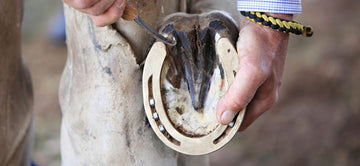Introduction to Proper Pet Care
Caring for a pet is more than a daily routine—it’s a lifetime commitment to their health, safety, and happiness. When bringing home a new pet, it is important to prepare adequately by considering their food, environment, and veterinary care.
Whether you’re a first-time pet parent or a seasoned animal lover, understanding the basics of pet care is crucial to building a strong and loving bond with your furry companion.
Proper pet care involves more than just food and water. It includes regular veterinary visits, daily exercise, mental stimulation, grooming, and a safe, comfortable living environment. Pets depend on us for everything, and in return, they offer unconditional love and companionship that enhances our lives in countless ways.
By prioritizing your pet’s physical and emotional well-being, you ensure they live a long, healthy, and fulfilling life by your side.

Nutrition for Pets: Fueling a Healthy Life
The Importance of a Balanced Diet
One of the most critical elements of responsible pet care is proper nutrition. A healthy, balanced diet is the foundation of your pet’s overall well-being. As dogs mature, their dietary needs change, and adult dogs typically require just one meal per day for adequate nutrition. Whether you have a dog, cat, rabbit, or another pet, their food should be tailored to their:
-
Life stage (puppy, adult, senior)
-
Breed, breed mix, or species-specific needs
-
Health conditions or allergies
Avoid pet foods with fillers like corn, soy, artificial colors, and preservatives. Instead, look for high-quality ingredients, including real meat, whole grains, and essential fatty acids to support your pet’s energy, coat, and digestion.
Hydration Matters
Access to fresh, clean water is crucial for your pet's health, just as important as nutrition. Dehydration can lead to serious health issues, especially during hot weather or after physical activity. Ensure your pet’s water bowl is refilled daily and cleaned regularly to avoid bacteria buildup.
Treats and Supplements
While treats are great for training and bonding, they should be used in moderation. Choose nutritious, low-calorie treats that support dental health or joint function. In some cases, your vet may recommend dietary supplements like omega-3s, probiotics, or multivitamins to address specific needs.
Here are some useful tips: opt for treats with natural ingredients, avoid artificial additives, and consult your vet to ensure the supplements meet your pet's specific health requirements.

Health and Wellness Through Regular Check-Ups
Veterinary Visits and Preventative Care
Annual or biannual vet check-ups are essential to keep your pet healthy and happy. These visits help monitor:
-
Weight and body condition
-
Dental health
-
Vaccination schedules
-
Parasite prevention (fleas, ticks, heartworms)
Early detection of health issues often leads to better outcomes and lower treatment costs. Your veterinarian is also a valuable resource for advice on nutrition, behavior, and overall care. Additionally, understanding and meeting your pet's individual exercise needs is crucial for their physical and mental well-being.
Preventative Medications and Screenings
Keeping up with flea and tick prevention, as well as regular deworming and heartworm medication, can prevent discomfort and serious diseases. Regular screenings can help prevent health problems by identifying issues early.
Pets should also be tested annually for common issues like intestinal parasites and blood-borne infections, depending on your geographic location and their lifestyle.
Daily Health Monitoring
Be observant of changes in your pet’s:
-
Appetite or water intake
-
Behavior or mood
-
Bathroom habits
-
Skin, coat, or energy levels
Monitoring these changes helps your pet stay healthy. Promptly reporting any concerns to your veterinarian can make a significant difference in your pet’s health.
Socialization and Interaction with Other Animals
Why Socialization Is Crucial
Socialization plays a vital role in helping pets become well-adjusted, confident, and friendly companions. Early exposure to new people, pets, environments, and experiences helps reduce:
-
Anxiety
-
Aggression
-
Fear-based behaviors
Puppies and kittens benefit most from early socialization, ideally between 3 and 14 weeks old. For a first-time adopter, understanding the importance of early socialization is crucial to ensure their new pet grows up to be a well-behaved and happy member of the family.
Training for Good Behavior
Positive reinforcement is one of the most effective training techniques. Use treats, praise, and affection to reward desired behaviors. Training helps:
-
Strengthen your bond
-
Establish good manners
-
Reduce behavioral issues
Enroll your pet in a basic obedience class or use online tutorials to learn effective training strategies. Additionally, here are some tips for effective training: be consistent with commands, keep training sessions short and fun, and always end on a positive note.
Providing Social Opportunities
Pets need interaction to thrive. Many cats benefit from a stimulating environment that includes cozy spaces like covered beds where they can feel secure. Consider:
-
Dog parks and doggy daycare for canines
-
Cat cafés or pet-friendly events for felines
-
Enrichment toys or puzzles for solo play
Even indoor pets benefit from stimulation and variety in their environment.
Maintaining a Happy and Healthy Pet
The Importance of Grooming
Grooming isn’t just about appearance—it helps prevent health issues and keeps your pet comfortable. For indoor cats, grooming is essential to maintain their health and well-being. Depending on the breed, grooming may include:
-
Brushing to reduce shedding and prevent matting
-
Bathing to keep the coat and skin clean
-
Nail trimming to avoid painful overgrowth, often complemented by providing a scratching post
-
Ear cleaning to prevent infections
Regular grooming also gives you a chance to check for bumps, cuts, fleas, or skin problems early. Using a dog-specific shampoo is also essential. And if you do find any cuts or scrapes, a dog wound spray is also a must.
Creating a Comfortable Home Environment
A safe and enriching environment supports both your pet’s physical and emotional needs. Essentials include:
-
A warm and cozy place to sleep
-
Access to scratching posts, toys, and chew items
-
Safe zones for rest, especially during loud events like fireworks
Creating a comfortable home also means ensuring a safe environment for your pets. Pet-proof your home by removing small objects, electrical cords, and toxic plants that could pose a danger. Additionally, make sure your house is free from hazards to protect both your pets and your living space.
Weather and Seasonal Care
Extreme weather requires special care:
-
In summer, provide shade, fresh water, and limit exercise during peak heat to protect them from extreme weather.
-
In winter, protect your pet from frostbite with paw wax, jackets, and indoor shelter. Keeping pets indoors during extreme weather conditions is crucial for their safety.
-
Never leave pets in parked cars during hot or cold conditions, as temperatures can quickly become dangerous.
Conclusion and Final Thoughts on Pet Care
Being a pet parent is a rewarding and fulfilling experience that comes with lifelong responsibility, prioritizing your pet's health and happiness. Proper care is essential to ensure that pet lives are long and healthy.
Your pet depends on you for their health, happiness, and security, and it’s up to you to meet their physical, emotional, and medical needs.
By following the advice in this guide—maintaining proper nutrition, scheduling regular check-ups, promoting socialization, and providing a loving home—you’ll help your pet live a longer, happier, and healthier life.
Remember, pets are more than animals; they’re members of the family. With patience, compassion, and consistent care, you can build a relationship that brings joy to both you and your loyal companion for years to come.










